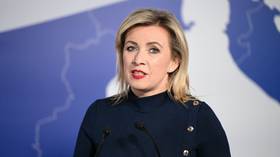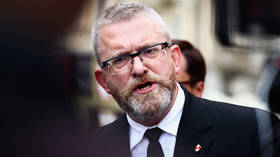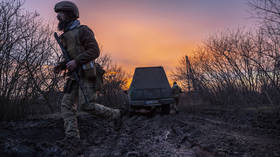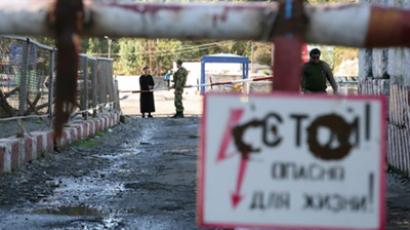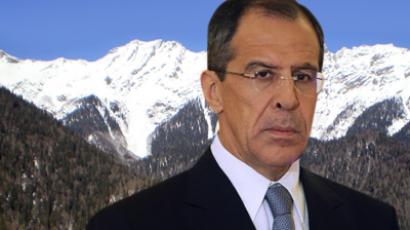“There is an enormous amount of work ahead” – Abkhazian President
The republic of Abhkazia in the Caucasus will elect a new president in just over a week, following the death of its leader after cancer treatment.
RT interviews Aleksandr Ankvab, the acting President of Abkhazia and one of the candidates in the upcoming presidential elections.RT: The upcoming presidential election will be the second since Abkhazia gained recognition. How hard it is for Abkhazia to live as an independent state? Aleksandr Ankvab: Of course, there are many difficulties. We have accomplished a lot already, but there is still an enormous amount of work to be done. We are optimistic about our future. The most important thing is that following our country’s recognition, we’ve had its security ensured. Now all we need to do is get down to work, as there are a lot of things to be done for the country and the people.RT: Many Abkhazians currently reside abroad, there are also Georgian refugees who would like to return to their homes in Abkhazia. Will the upcoming election take into consideration the needs of those who consider this republic as home?AA: I don’t see any relation between the Abkhazians who reside abroad – in Russia or in more remote places – and the refugees who were displaced because of the war. As for the election, it is only citizens of our republic who are eligible to vote. There is nothing I can add to this.RT: Will international observers be present at the election? Who has been invited already and who has agreed to come?AA: There will be very many observers. If 100 is a lot, then there it is, because that is approximately the number of observers that will be monitoring our election. We have already sent the invitations – our parliament saw to that. By the way, observers were present in significant numbers at the previous election, when Sergey Bagapsh got re-elected. I can tell you honestly that their evaluations were mostly positive for Abkhazia. The observers considered our election to be fairly democratic and transparent, and maintained that Abkhazia should serve as an example for many countries. I think the upcoming election will go exactly like that as well.RT:Since Abkhazia remains unrecognized by many countries, what are the chances that the current election will be considered legitimate abroad?AA: That is not our focus. What matters to us is that we must administer the election in accordance with Abkhazia's legislation. How others may react to it is another matter. What is truly important is that we do everything right. Those who are unbiased will come up with an impartial assessment of the election. As for the issue of recognition of our election, let me speak plainly, even if it sounds a bit too blunt for this interview – we don’t really care.RT: According to supporters of your competitor Sergey Shamba, he is the current leader of the polls with almost 40 per cent of support. What are your views on the campaign?AA: In accordance with a long-held principle, I would prefer to refrain from mentioning any names now, and according to our new and improved procedures, I wouldn’t cite any figures. Public opinion is a very intricate matter, especially in Abkhazian society, and figures do not always reflect the actual situation. The results of the election will become clear once the votes have been counted and formalized in an official statement. As for today, we are busy preparing for the vote, and the election campaign is generally moving ahead without any trouble. There are occasional rough edges, but I’m confident that the people in some of the campaign headquarters will adjust their stances and keep to the guidelines of the agreement that was signed by the three presidential candidates.RT:The political battle of 2004 placed Abkhazia on the brink of civil war. What should be done to avoid such a scenario today?AA: There’s nothing of the kind, not by a long shot. In 2004, the situation was absolutely different. I can tell you honestly, and I believe it is very important that your viewers should be aware of this.Back in 2004, it was through some very serious efforts by Sergey Bagapsh and Raul Khadjimba that the situation was stabilized. I would even say that it was thanks to the wisdom and foresight of these two politicians that the situation was resolved successfully and appropriately. Abkhazian society was very grateful to both of them for that. If anyone feels that the events of 2004 may recur, I believe such an assessment is premature. We – I mean Abkhazian society – do not share the opinion of those who believe that this election will end up in some kind of confrontation. We have entirely different plans.RT: The Russian-Abkhazian treaty of military co-operation that laid groundwork for stationing Russian troops in the country was signed 18 months ago but it has been submitted for ratification by the Russian parliament only recently. Why is that process getting a fresh start today? Is there a fear of fresh Georgian aggression?AA: We know that for us, Georgia is not a very friendly state. Abkhazia’s present legal standing allows us to say that any aggression will be repelled. Besides, the presence of Russian servicemen feeds our optimism about the future. Our safety, and that of our country, is securely protected. And we intend to strengthen this kind of cooperation with the Russian Federation. We’ve also been collaborating with Russia in other areas. Everything is just getting started, and it all looks promising and mutually rewarding. We intend to meticulously implement the comprehensive agreement signed by our two presidents, Mr. Dmitry Medvedev and Mr. Sergey Bagapsh. We strongly support the case for strengthening our relations with Russia.RT: What kind of methods can we expect from Georgia in its attempts to restore what official Tbilisi calls the “country’s territorial integrity”?AA: Over recent years, we have lost a lot of people to violence on the border, including over 100 Russian peacekeepers, as well as our border guards, customs officers, reservists and civilians. And it is certainly Georgia’s policies that are to blame. Even today, regretfully, the Georgians often engage in assaults and sabotage operations. You probably remember there was a Russian border trooper, a young Lieutenant Colonel who was killed in action a few months ago – it was in news reports. But despite that, Russian border troops remain stationed in Abkhazia. I believe that in a year or so, our border will be sufficiently fortified, and the situation will change drastically. We are really looking forward to that.RT: Is it possible for Georgians who are prepared to recognize Abkhazia as an independent state to return to their homes, not only in the bordering Gali district but also in, let’s say, the capital, Sukhum? AA: Today, the situation in the Gali District is very different from what it was like in the past. And we are convinced that there will be continuous progress. At the moment, we have issued about 9,000 Abkhazian passports for the residents of the Gali district, and this trend continues. We are strongly concerned that our people should feel safe and live in peace. Traditionally, this area was always well-developed economically, and we’re confident that it will pick up eventually, and the life of the people in Gali will improve. We believe that this district has great prospects, and it is our task to make sure that all Gali residents feel like rightful citizens of our republic.RT: There is a whole generation of people in Abkhazia who survived two wars with Georgia in the past 20 years. Is it possible at all for these people to live peaceful lives?AA: If you refer to our young people, aged 18 to 20, they really cherish the events of the recent past, and honor the memory of those who defended their country’s independence. And it is the task of our government to keep strengthening this memory. The way I see it, our people don’t live in constant expectation of things to come, nor do they constantly think back to the events of the past. From my point of view, Abkhazia’s present domestic situation is very tranquil.RT: You have survived five assassination attempts during the past six years. Why has no one been charged? You probably know who is behind them. Is your life in danger now?AA: A politician should always be aware of danger. As for me personally, these assassination attempts are being investigated. The relevant security agencies have made considerable progress in this aspect, but this is an issue for a separate discussion.RT: Abkhazia needs foreign investment, but is it possible to attract capital to projects in the country when its legal and economic status lacks credibility in the eyes of potential investors? How would Abkhazia protect international investors?AA: Of course, our own budget is quite modest, and we certainly are in need of money in the form of investment. At present, most of the investment comes from Russia, but we would definitely be happy if international businesses would also consider co-operating with the Republic of Abkhazia. We are open for that, and our fiscal and investment legislation is fairly advanced. I believe this is surely going to happen some day. As for now, we mainly get investment from the Russian Federation, and we are very happy about it. We understand each other very well, and our prospects are great.RT: The Russian city of Sochi is very close to Abkhazia. Is there any profit for Abkhazia in the fact that so much is being invested into Sochi Olympic projects?AA: Much to our regret, we were unable to organize in due time so as to take part in those projects, at least with our commodities – I’m talking about sandy gravel, cement, or crushed stone. We do deliver some of the materials, but the volumes are tiny. If we were to increase our sales, this would certainly earn us some money, and that would be good for both our businesses and our government. But so far, our sales volumes are virtually insignificant.



